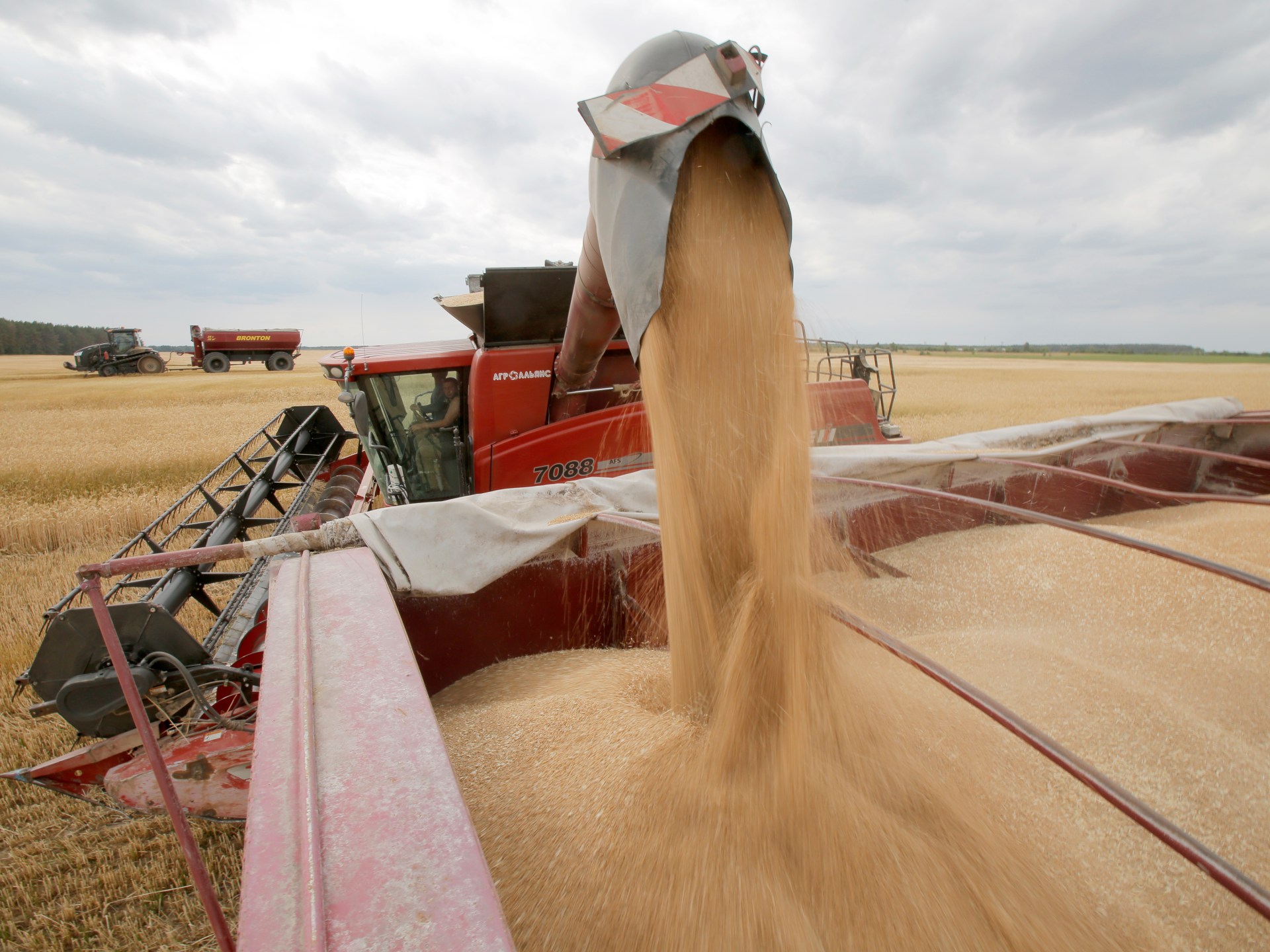Wheat led the decline in grain prices amid strong export competition (Associated Press)
The United Nations Food and Agriculture Organization (FAO) world food price index rose in March from a three-year low, driven by higher prices for vegetable oils, meat and dairy products.
The organization said on Friday that its price index - which measures changes in the prices of the most widely traded primary food commodities globally - recorded an average of 118.3 points last March, up from an average level of 117 points in the previous month.
Read also
list of 4 itemslist 1 of 4
An American lawsuit against Huawei is heading to the courts in early 2026
list 2 of 4
Gold continues to soar to unprecedented levels
list 3 of 4
Concerns about supply impacts raise oil to near $89
list 4 of 4
Oil is at the highest level since October 2023
end of list
Last February's reading was the lowest since February 2021, and represented the seventh monthly decline in a row.
Global food prices have fallen sharply from an unprecedented peak reached in March 2022 with the beginning of the Russian-Ukrainian crop export war.
The organization stated that the latest monthly reading of the index decreased by 7.7% on an annual basis.
Price position
Vegetable oil prices rose at the highest pace in March, by about 8% on a monthly basis.
The dairy products index rose for the sixth month in a row by about 2.9%, driven by the prices of cheese and butter.
While the meat index increased 1.7%, driven by higher prices of poultry and beef.
The FAO Cereals Index fell 2.6% on a monthly basis.
The sugar index also fell by 5.4%.
The FAO stated that wheat led the decline in grain prices amid strong export competition and the cancellation of purchases by China, which offset a slight increase in corn prices due in part to logistical difficulties in Ukraine.
The organization added that the decline in sugar prices came against the backdrop of raising estimates of expected production in India and improving the pace of harvest in Thailand.
Production estimates
In a separate report on cereal supply and demand, FAO raised its estimate for cereal production in 2023-2024 to 1.1% from the previous year to 2,841 million tons from 2,840 million tons estimated last February.
Regarding expectations for the year 2024, the United Nations organization reduced the expected wheat production to 796 million tons from 797 million tons in the previous month’s forecast, due to lower expectations for crops in the European Union and Britain after rains that damaged crops and drought conditions in some areas.
As for corn, FAO said that a decline in global production is expected, but the volume of production will remain higher than the average of the past five years, without providing specific estimates.
Source: Reuters

